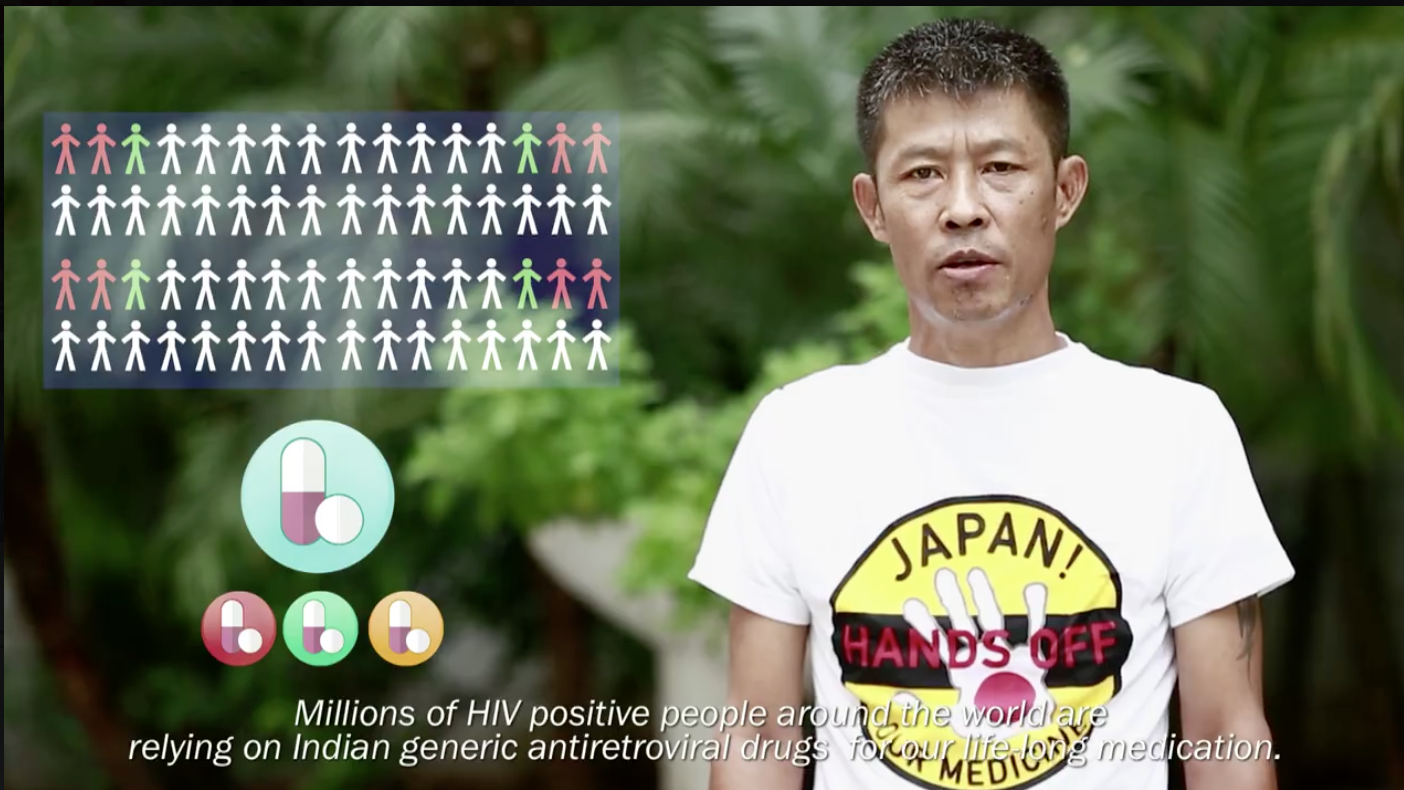Why millions of people around the world are counting on India to protect them against harmful provision in the Regional Comprehensive Economic Partnership (RCEP) Trade Agreement
Hyderabad, 24 July 2017 – The Regional Comprehensive Economic Partnership (RCEP) is a free trade agreement that has been in negotiations since 2012, between 16 countries – including Australia, China, India, Japan, New Zealand, and the Republic of Korea. Because of the countries it represents, it will cover nearly 50% of the world’s population – including the most vulnerable, marginalized and impoverished.
A leaked draft of the RCEP’s negotiating text on intellectual property (IP) and investment reveals proposals from Japan and South Korea that could undermine access to affordable medicines and medical innovation across the Asia Pacific region. As the next round of RCEP negotiations start in Hyderabad today, the International Treatment Preparedness Coalition (ITPC) and its allies around the world are calling on the involved countries to drop four key provisions in the trade agreement that will increase market monopolies for pharmaceutical corporations and block access to affordable medicines.
As the next round of RCEP negotiations start in Hyderabad today, the International Treatment Preparedness Coalition (ITPC) and its allies around the world are calling on the involved countries to drop four key provisions in the trade agreement that will increase market monopolies for pharmaceutical corporations and block access to affordable lifesaving generic medicines“People living with HIV – many of whom rely on generic HIV drugs – have seen time and again how access to medicines is undermined when trade agreements include provisions that limit access to medicines,” cautioned Solange Baptiste, ITPC Executive Director. “ITPC welcomed the recommendations of the UN Secretary-General’s
“People living with HIV – many of whom rely on generic HIV drugs – have seen time and again how access to medicines is undermined when trade agreements include provisions that limit access to medicines,” cautioned Solange Baptiste, ITPC Executive Director. “ITPC welcomed the recommendations of the UN Secretary-General’s High Level Panel on Access to Medicines for countries to make full use of existing public health safeguards in trade and to reject measures beyond this. We expect RCEP countries to heed this advice, reject these provisions, and protect access to medicines for the 3.5 billion people living in RCEP countries, as well as the millions more worldwide.”India has been a leader in making use of these public health safeguards and resisting India has been a leader in making use of these public health safeguards and resisting
India has been a leader in making use of these public health safeguards and resisting expansion of monopolies that threaten access to affordable medicines. As a result, the Indian generics industry has been able to play a crucial role in the revolutionary scale up of HIV treatment by ministries of health around the world – particularly in low- and middle-income countries. As people living with HIV continue to lack of access to new drugs to treat coinfections, such as tuberculosis and hepatitis C, India’s ability to provide low-priced generics can save lives. This capacity, however, will be restricted if India commits to the current provisions included in the RCEP trade agreement.
“Millions of people globally are counting on India to continue to stand firm and resist dangerous provisions that represent a matter of life and death for those in need of treatment,” said Loon Gangte, Regional Coordinator of ITPC South Asia. “India has been through this before with the EU-India trade agreement where similarly harmful provisions undermining access to medicines were either withdrawn or dropped. The country needs to stand firm again!”
***
Download the press release in PDF here
Editor’s Notes:
This week ITPC expressed these concerns in a letter to India’s Minister of Health, as well asto Indian Ambassadors in Russia, Guatemala, Kenya, Morocco, Botswana, and USA (New York, Washington D.C.).
The UN Secretary-General’s High-Level Panel on Access to Medicines’ report was published in September 2016 and subsequently endorsed by then-UN Secretary-General Ban Ki Moon. The report makes recommendations to address the “policy incoherence between the justifiable rights of inventors, international human rights law, trade rules and public health in the context of health technologies.”
UPDATE: August 3, 2017
Local media in India and the Asia-Pacific region continues to cover this story.
- New Zealand Negotiator at Asia Trade Pact Talks Says Countries Should Analyse TRIPS-Plus
- Women’s groups resistance to mega free trade deal signals alarm
- 22 HIV positive people detailed
- People living with HIV stage flash protest to fight for access to medicines; arrested, released
UPDATE: October 26, 2017
Local media in India report that India will stand to oppose provisions in the RCEP that could hinder global access to generic drugs.
- India to oppose anti-generics proposals at RCEP meet: “According to people attending the negotiations, India has not agreed to provisions like extended patent terms and data exclusivity. Data exclusivity is a form of legal monopoly protection for a drug, over and above patent protections. South Korea and Japan have been pushing for proposals to extend drug and vaccine patent terms, a move that is likely to inhibit competition in countries like India.A leaked negotiating text of RCEP indicates that India’s ministry of commerce, which is the chief negotiator, is resisting many aspects of the Japanese and Korean demands for higher intellectual property rights (IPR) standards. The measures go beyond what is required by the World Trade Organization (WTO) Agreement on Trade-Related Aspects of Intellectual Property (TRIPS), and are called TRIPS-plus provisions.”
